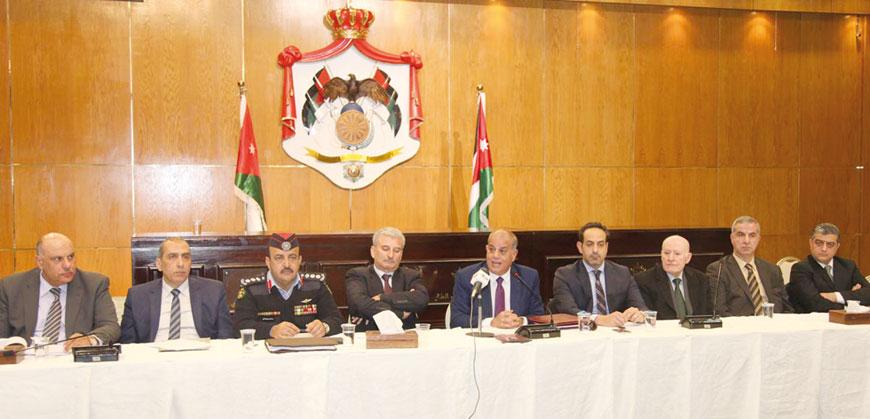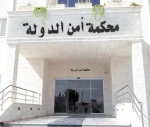You are here
Gov’t responds to national human rights centre report
By Rana Husseini - Feb 12,2017 - Last updated at Feb 12,2017

The government’s coordinator for human rights, Basil Tarawneh, speaks at a meeting in Amman on Sunday to discuss the government’s response to the National Centre for Human Rights’ report (Petra photo)
AMMAN — The government on Sunday responded, through an “explanatory report”, to the National Centre for Human Rights’ (NCHR) 2015 report on the status of human rights in Jordan.
In its report, released in late 2016, the NCHR said that although practical steps were taken to address the government’s procrastination in implementing the NCHR’s recommendations, “this did not lead to a quantitative change in relation to the human rights status in Jordan in 2015”.
“This situation continues to constitute a source of concern to the centre due to the slowness (or absence) of the effective implementation of the recommendations of the NCHR,” the report said.
The NCHR went on to warn that priority has been given to “considerations of security and/or social customs and traditions over the requirements of safeguarding human rights in many cases”.
Furthermore, the human rights centre added, public policies have “continued to impact the reality of human rights in the Kingdom in a manner impinging on Jordan’s international obligations, and even the rights stipulated by the Constitution in particular domains”.
“Today, I announce the completion of our work as a committee to respond to what came in the NCHR [report] in the form of [an] explanation,” the government’s coordinator for human rights, Basil Tarawneh, said.
Tarawneh was tasked by Prime Minister Hani Mulki to head a committee to follow up on the recommendations of the report and take decisions to address human rights shortcomings in the Kingdom.
Tarawneh was speaking during a meeting held at the Royal Cultural Centre alongside representatives from governmental and non-governmental organisations, international and Arab institutions, as well as the media.
“We contacted the concerned institutions and came to the conclusion that some of the recommendations were achieved, while others need to be followed up on by the government,” Tarawneh told the gathering.
Also speaking during the meeting was one of the committee members, Col. Hussam Majali from the Public Security Department (PSD), who touched on the issue of torture in Jordan.
“The NCHR’s report said that the legal prosecution of torture was lacking, and I believe that the responsibility does not lie only with the PSD. It is the responsibility of parties involved to draft and submit a proper punishment for anyone who is convicted of torture,” the police official said.
Majali stressed that the PSD is adopting the proper international standards in terms of handling cases of torture, adding that “there are a handful [of] cases of torture and they are being tried at a Police Court, and all sessions are open to the public”.
The police official said there are 14,231 inmates at the Kingdom’s correctional and rehabilitation centres.
“This is a big number that is a big burden on us and we are working on opening new centres, including the Qafqafa centre, which is due to open later this year,” another committee member, Abdullah Smeirat, said.
Smeirat, from the Ministry of Social Development, said there are six offices affiliated with the ministry that are present at correctional and rehabilitation centres.
“We constantly distribute pamphlets to the inmates to inform them of their rights and those of their families,” he explained.
At the end of the 90-minute meeting, Tarawneh presented a copy of the report to the NCHR commissioner and said the report will also be presented to the Cabinet, Parliament and other relevant institutions.
Related Articles
AMMAN — The National Centre for Human Rights (NCHR) on Sunday commended Prime Minister Abdullah Ensour’s decision this week to form a commit
AMMAN — Senate President Abdur-Ra’uf S.
AMMAN — The Lower House’s Public Freedoms and Human Rights Committee on Sunday discussed the 2017 human rights report of the National Centre















